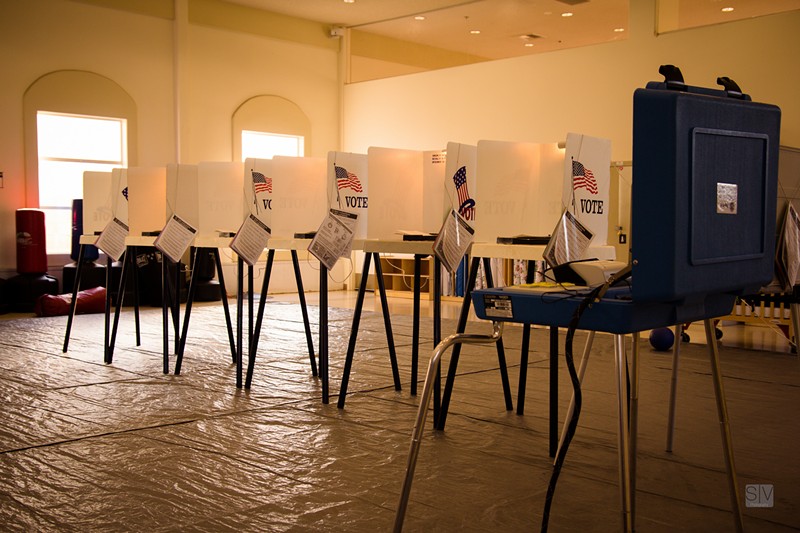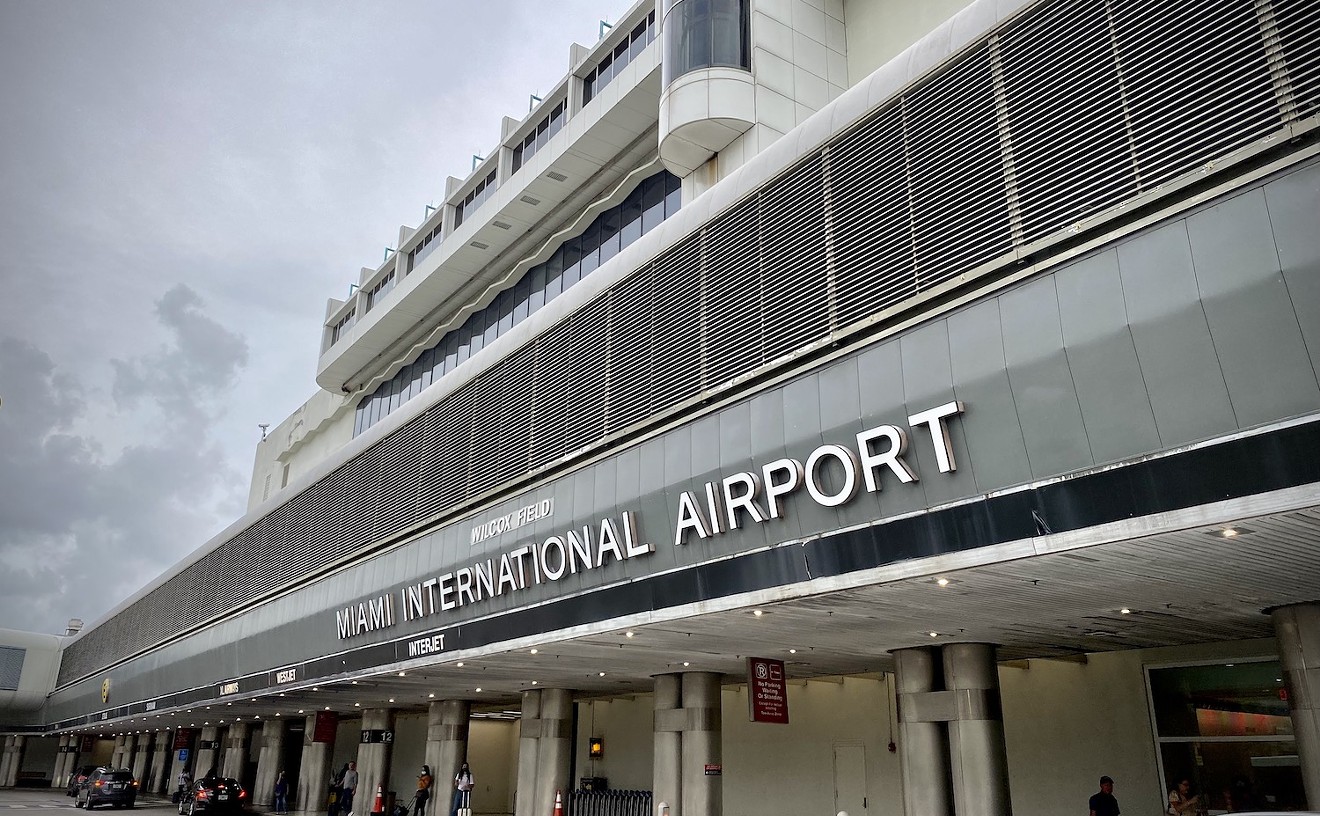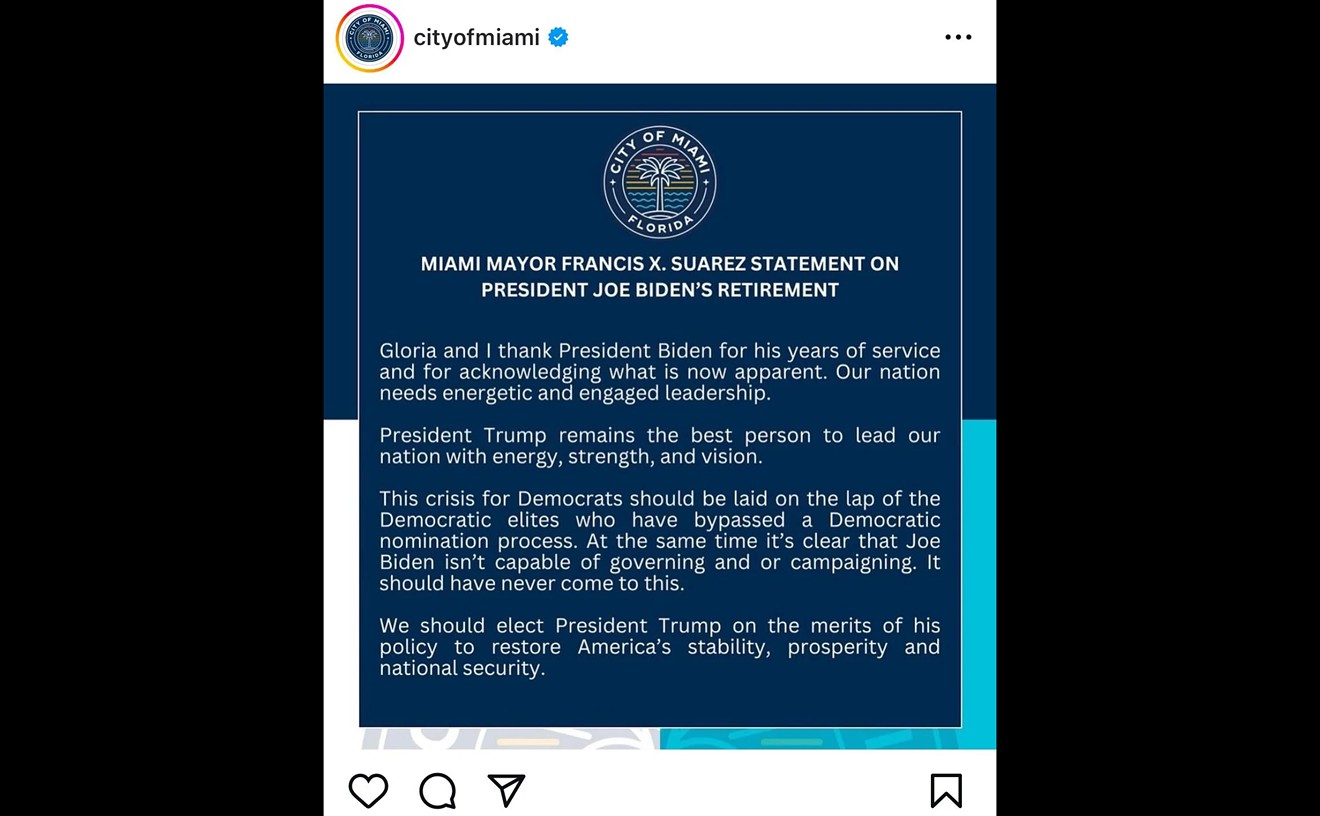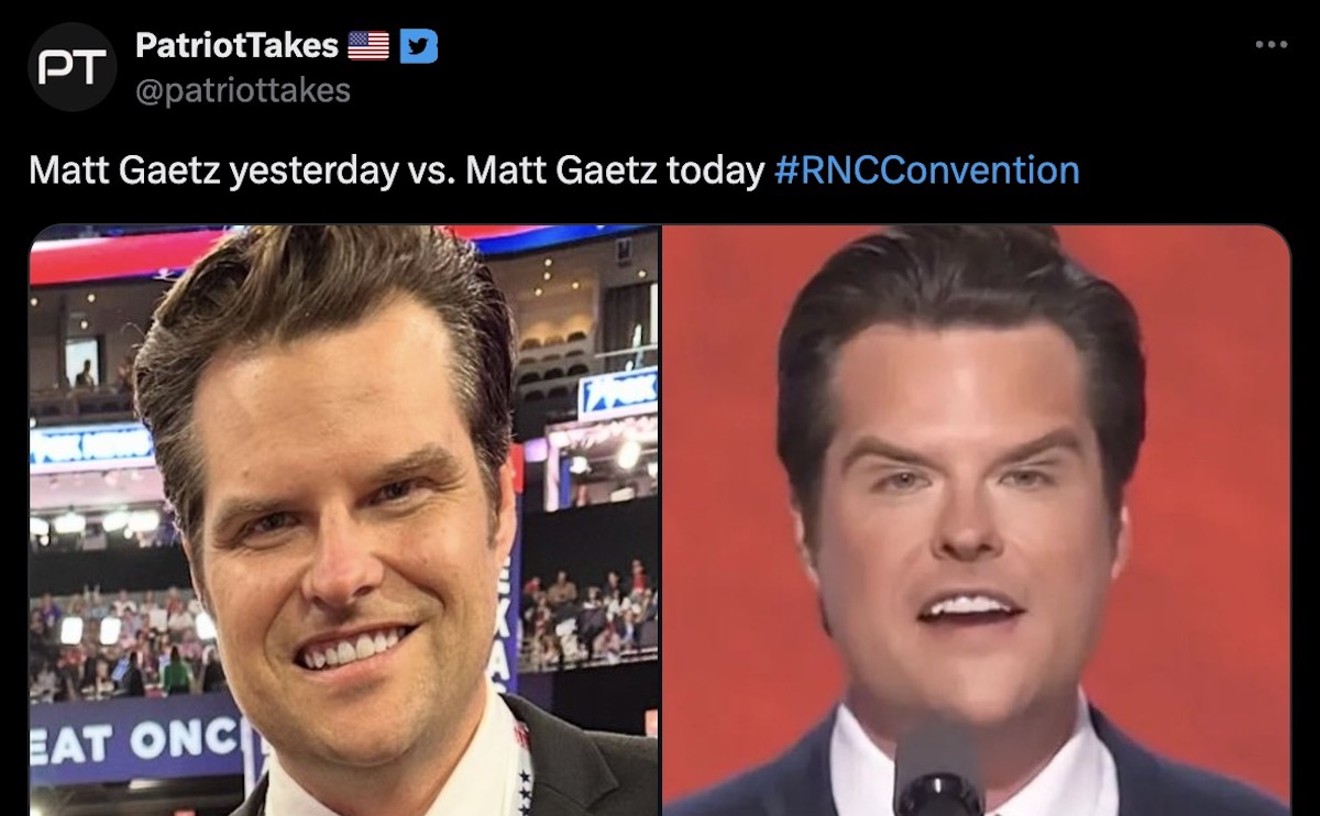The 2018 Florida ballot measure to restore voting rights to most felons was literally years in the making. Amendment 4's biggest champion — Desmond Meade, a former Miami resident and executive director of the Florida Rights Restoration Coalition — started gathering petition signatures across the state in 2012.
The amendment passed with 65 percent voter approval from across the political spectrum. But state Republicans have been working to undermine Amendment 4's sweeping victory. Last month, GOP legislators introduced bills (HB 7089 and SB 7086) that would require offenders to pay back court fees before becoming eligible to vote. Critics say those fees are essentially a "poll tax" on felons, many of whom struggle to find a decent-paying job due to their criminal backgrounds.
On Friday, the Florida ACLU will hold sit-ins at district offices across the state to urge lawmakers to oppose any further restrictions on felon voting rights.
"The passage of Amendment 4 marked the single greatest victory for voting rights in the U.S. since 1965," the group said in a news release. "While voting rights are under attack all across our country, we have to do everything we can to protect Amendment 4."
In Miami, the sit-in will take place at the office of Sen. Jose Javier Rodriguez at 11 a.m. Friday. (Rodriguez, a Democrat, supports Amendment 4 and opposes efforts to add further restrictions.) The ACLU will hold other sit-ins in Fort Myers, Lakeland, Palm Coast, Longwood, and Lady Lake.
Amendment 4 states that felon voting rights "shall be restored upon completion of all terms of [a] sentence, including parole or probation." The Republican bills, however, take the position that a sentence includes all court fees and fines.Any person who would have rights restored by #Amendment4 will have rights on January 8. Am 4 is self-implementing by design. Any attempt by @GovRonDeSantis or the Legislature to "implement" is a power grab in an attempt to take away that right. Hands off.https://t.co/wZ7W8icPWF
— José Javier Rodríguez (@JoseJavierJJR) December 14, 2018
That's a problem, because Florida has more than 20 different kinds of financial obligations for criminal defendants, according to a 2010 report from the Brennan Center for Justice, a nonpartisan public policy institute. The report adds that Florida clerks' offices expect to collect just 9 percent of felon court fees.
And that's not all: As WLRN reporter Danny Rivero pointed out last week, one of the amendment's authors appears to have a major conflict of interest when it comes to court fees and fines. Jon Mills, a former Democratic speaker of the Florida House and an attorney for Floridians for a Fair Democracy, has argued that defendants should pay their court fees in full before their voting rights are restored. But Mills previously helped create the very constitutional amendment that established court fees in Florida. (Mills did not respond to WLRN's requests for comment.)
In addition to the ACLU, the League of Women Voters (LWV) has spoken out against the new Florida bills. LWV president Patricia Brigham has called the Senate's bill "an attempt at voter suppression" that ignores the will of Floridians.
"It is disappointing that partisan politics is again subverting the will of an amendment that an overwhelming majority of voters approved," Brigham said in a statement last week.













